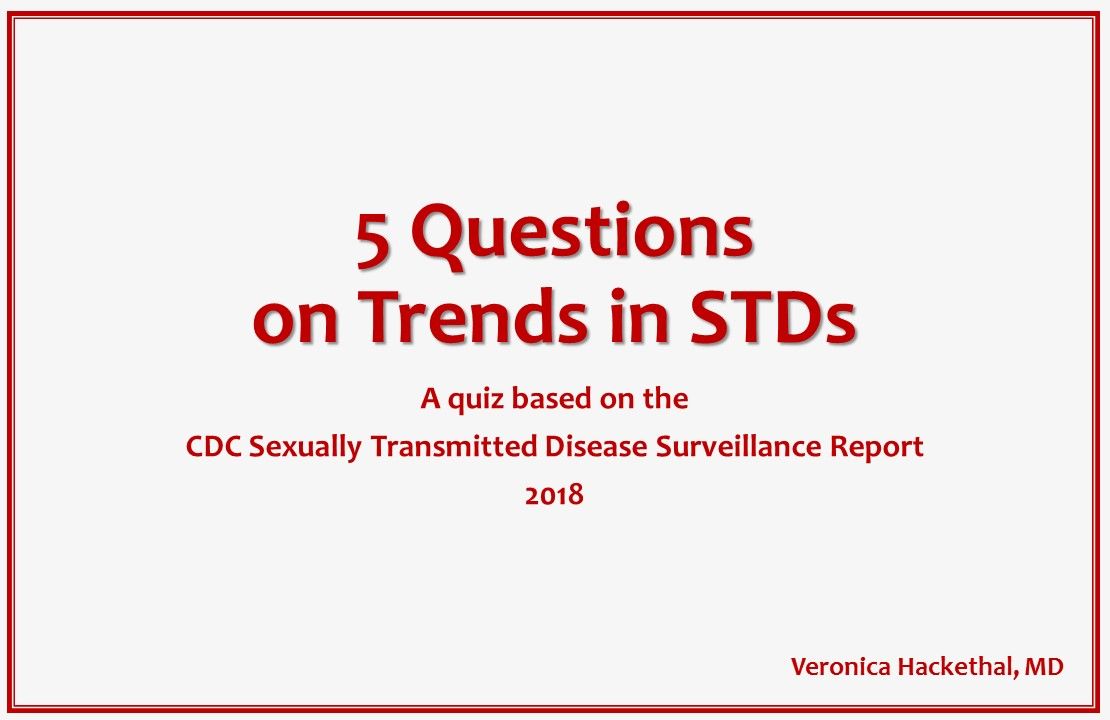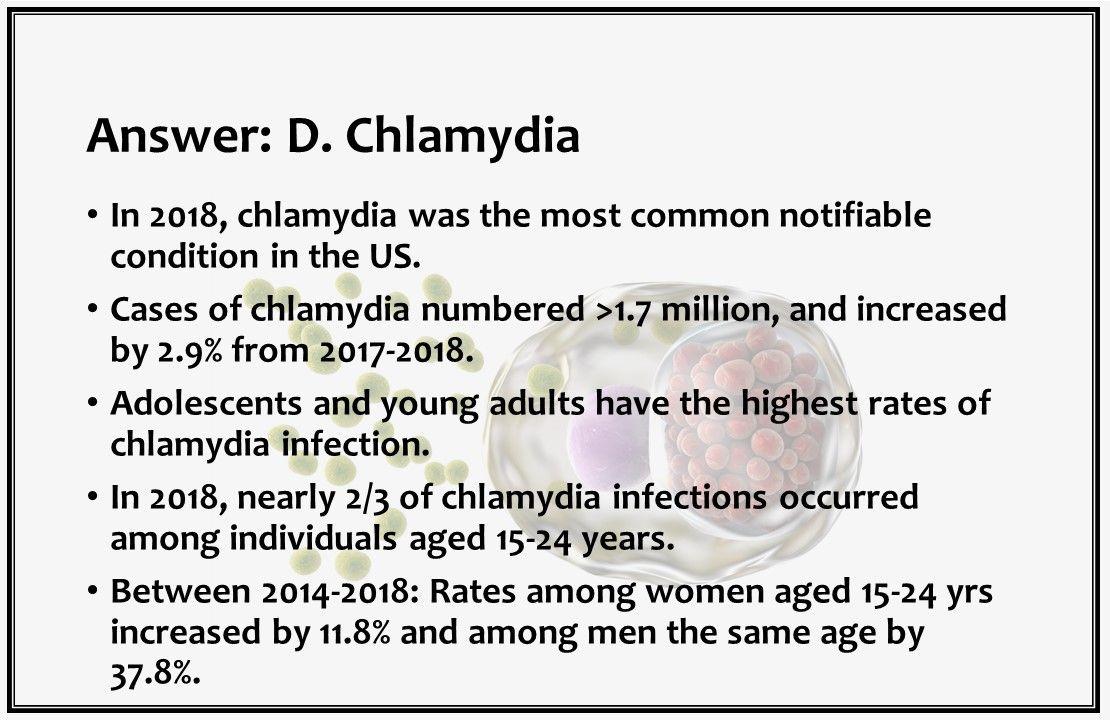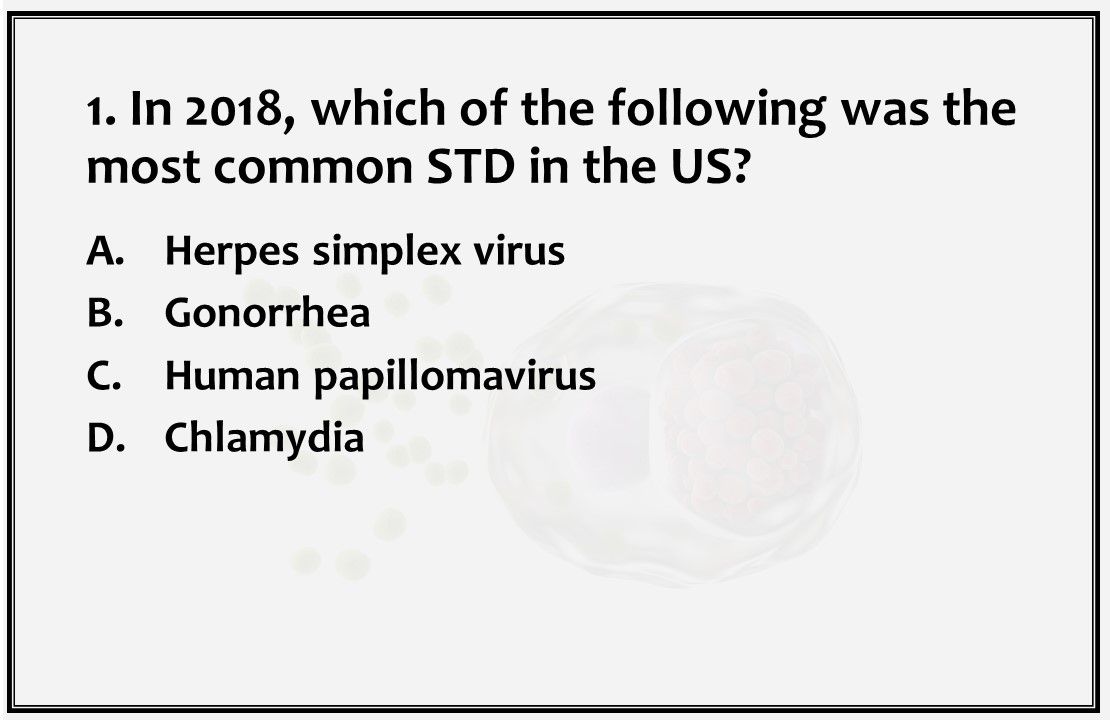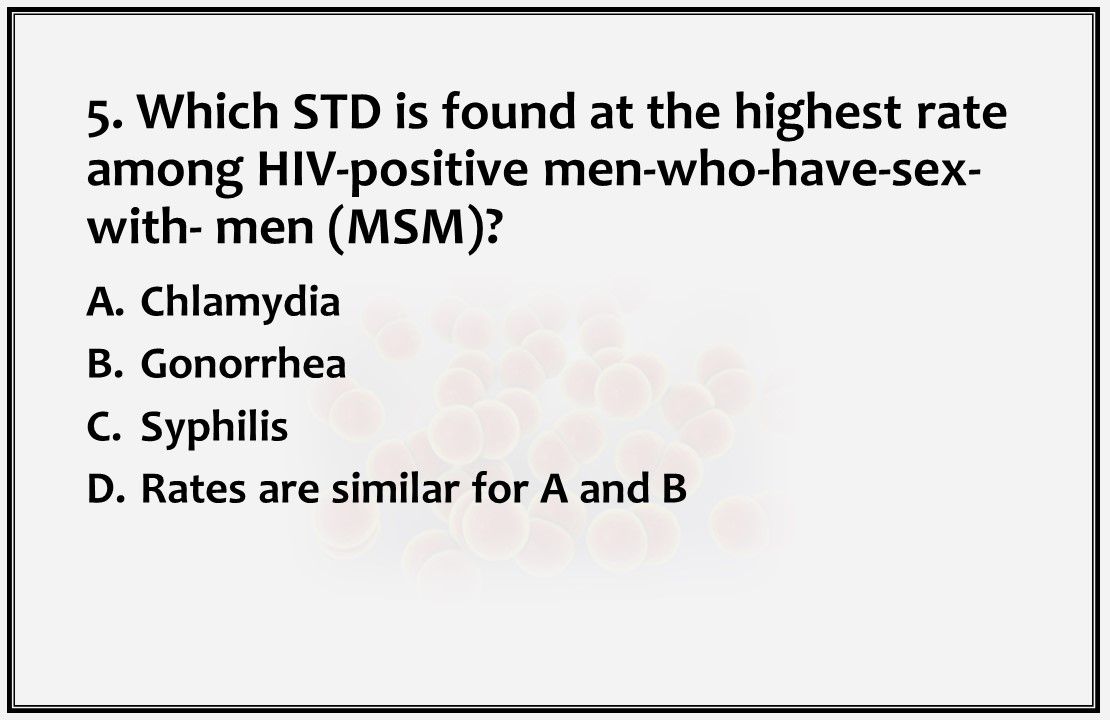© 2024 MJH Life Sciences™ and Patient Care Online. All rights reserved.
5 Questions on US Trends in STDs
Combined cases of 3 sexually transmitted diseases reached an all-time high in the US in 2018. Which 3? It's a test of your STD IQ.

The CDC's Sexually Transmitted Disease Surveillance 2018 report offers critical insight into the scope, distribution, and trends in diagnoses. These 5 questions and the answers offer a brief primer.

Answer: D. Chlamydia. In 2018, chlamydia was the most common notifiable condition in the US at >1.7 million cases; nearly 2/3 of chlamydia infections occurred among individuals aged 15-24 years. Rates among women aged 15-24 yrs increased by 11.8% and among men the same age by 37.8% between 2014-2018.

Answer: A. Tripled. Since 2014, rates of congenital syphilis have tripled, going from 462 cases in 2014 to 1306 cases in 2018, a trend that mirrors the rise in syphilis infection among reproductive age women - an increase of 172.2% between 2014 and 2018.

3. Approximately what percentage of gonococcal isolates are considered susceptible to antimicrobials?

Answer: B. ~50%. As of 2018, 49% of gonococcal isolates were considered susceptible to penicillin, tetracycline, fluoroquinolones, ceftriaxone, cefixime and azithromycin. About 15% of isolates were resistant to 2 antimicrobials, while 4.1% were resistant to 3 antimicrobials.
Combined cases of syphilis, gonorrhea, and chlamydia reached an all-time high in the United States in 2018. Test your STD IQ with 5 more questions drawn from the latest CDC report.









